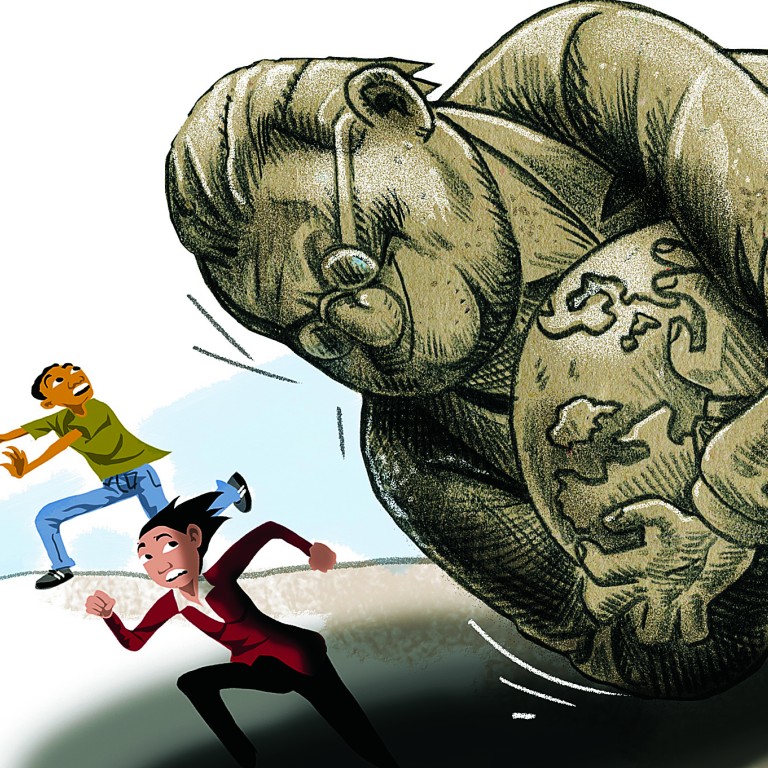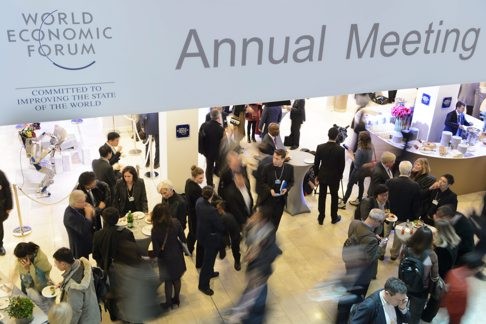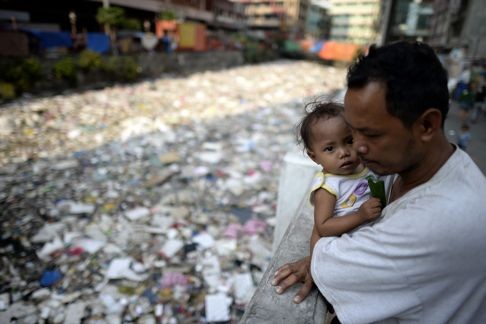
Uncontrolled capitalism is bringing the world to ruin, and nobody is fixing it
Kevin Rafferty says the mega rich show no sign of appreciating the global problems caused by wealth inequality

Little said or done at Davos, or since, indicates that they understand the crises – variously called “capitalism run amok” or “capitalism’s last stand”.
READ MORE: Widening wealth gap helps explain the sorry state of trust between elites and common folk
They – and we – have plenty of reasons to be afraid. On the eve of Davos, Oxfam, basing its arguments on data from Credit Suisse, a highly respected member of the global financial elite, issued an updated report on the disturbingly skewed state of global wealth, noting that the richest 1 per cent now own more than half of the world’s wealth, a year earlier than the charity had originally expected.
This is not just a passing phase, but a dangerous, chronic condition that threatens the economic, political and social structure of the world.

The mega rich also use devious schemes to protect their income from tax. Multibillionaire Warren Buffett admitted that he pays less tax than his cleaner. Some think tanks that should know better have published reports saying that if rich individuals gave more away, the problem could be solved; one multibillionaire could rescue a couple of poor African countries.
People need opportunities and jobs, and this depends on reducing the privileges and tax advantages of the mega rich
But this misses the point that people need opportunities and jobs, and this depends on reducing the privileges and tax advantages of the mega rich to open the economy to all and release new energies.
Part of the reason for the sluggish growth in the industrialised world is that companies have salted away their gains rather than invest in new jobs.
Perhaps the most surprising statistic is that, in Japan, supposedly one of the most equality-conscious countries in the world, companies have salted away a record 247 trillion yen (HK$16.3 trillion) in cash reserves, resisting the pleas of Prime Minister Shinzo Abe to raise wages, which might kick-start the economy.

Looming large is the threat from robots. Some experts predict that 40 per cent of current jobs may be at risk as advanced machines even march into the heartland of the elite and steal jobs from lawyers and investment bankers.
In the background is the really threatening thought that civilisation as we know it is nearing an end. Some scientists at Nasa recently predicted that the world has only a few decades left before cascading pressures from population, climate, water, agriculture and energy overwhelm it.
The space agency distanced itself from the findings, but the elites at Davos might consider the authors’ comments on the declines of previous civilisations, notably the Mayan and Roman empires: “Historical collapses were allowed to occur by elites who appeared to be oblivious to the catastrophic trajectory…”

The plummeting price of oil has spooked financial markets, which have gyrated bearishly. The Japanese yen also became a “safe haven” currency, strengthening even against the US dollar.
This is surely irrational behaviour: cheaper oil should be the harbinger of better economic times since it takes purchasing power from the producers and puts it in the hands of consumers and businesses.

Capitalism has become so distorted as to leave overwhelming power in the hands of bosses
The failure of capitalism in the West has also created a dangerous situation for China. Economic slowdown clearly has officials worried. Capital outflows estimated by Bloomberg at US$1 trillion last year have led economists to speculate that Beijing will introduce capital controls.
A front-page opinion article in the overseas edition of the People’s Daily this week demonstrated official nervousness. It warned billionaire George Soros against going to “war on the renminbi”. The headline said: “Declaring war on China’s currency? Ha ha”. Soros is only trying to make money, as he famously did by betting against the British pound. He claims that China is growing at only 3.5 per cent and a hard economic landing is inevitable.
READ MORE: Communist mouthpiece accuses billionaire investor George Soros of ‘declaring war against China’
China, above all others, is too big to fail, but it can stumble and damage itself and the world. Officials do not help themselves by loudly protesting that all is well when there are clearly too many problems, especially well-connected bankrupt banks and bankrupt near-banks that have enjoyed a system with Ponzi characteristics.
President Xi Jinping’s (習近平) increasing intolerance of any dissent and search for anti-Reds under every bed will not help clear thinking or brave economic decisions.
Beijing cannot expect much help from the diseased capitalism of the West. The US Federal Reserve must be wondering why it raised interest rates last month.
The Davos crowd cannot even agree on which way oil prices are heading. The World Bank expects US$30 for 2016. Bob Dudley, chief executive of oil giant BP, predicted US$55-US$60 a barrel in the second half of the year, but he also said it was “not impossible” that it might fall to US$10.
We should all be very afraid of the wretched quality of economic and political leadership.
Kevin Rafferty is a journalist, commentator and former professor at Osaka University

